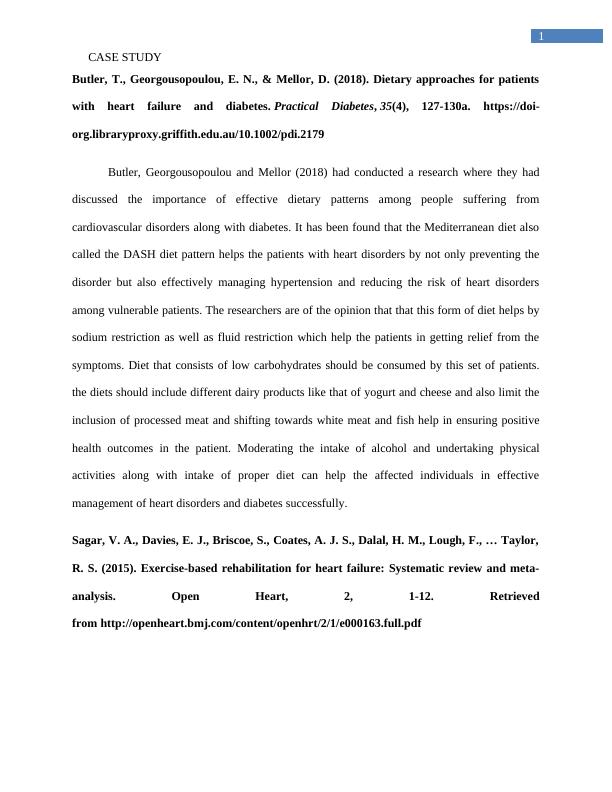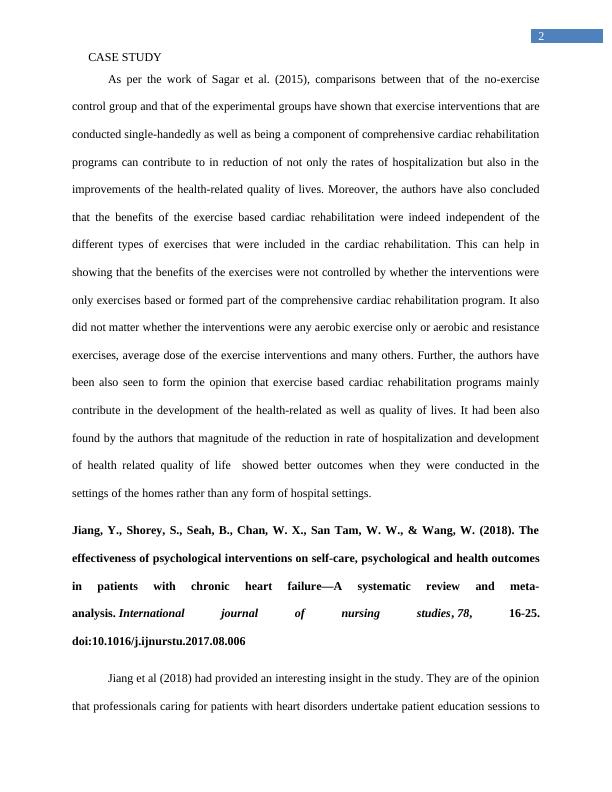Dietary Approaches for Patients with Heart Failure and Diabetes
Write a 1500-word annotated bibliography based on a case study and a reference list of relevant research articles.
10 Pages2700 Words100 Views
Added on 2023-01-16
About This Document
This case study discusses the importance of effective dietary patterns for patients with heart failure and diabetes. It explores the Mediterranean diet and its benefits in managing hypertension and reducing the risk of heart disorders. The study also highlights the role of exercise-based rehabilitation and psychological interventions in improving health outcomes for patients with chronic heart failure.
Dietary Approaches for Patients with Heart Failure and Diabetes
Write a 1500-word annotated bibliography based on a case study and a reference list of relevant research articles.
Added on 2023-01-16
ShareRelated Documents
End of preview
Want to access all the pages? Upload your documents or become a member.
Case Study of William: Effective Dietary Approaches, Exercise-based Rehabilitation, and Psychological Interventions for Heart Failure and Diabetes
|10
|2515
|178
Dietary Approaches for Heart Failure and Diabetes
|8
|2366
|184
Dietary Approaches for Heart Failure and Diabetes
|8
|2552
|27
Annotated Bibliography Paper 2022
|9
|2246
|44
Nursing Annotated Bibliography for Chronic Heart Failure Management
|10
|2663
|236
Annotated Bibliography
|10
|2466
|202



